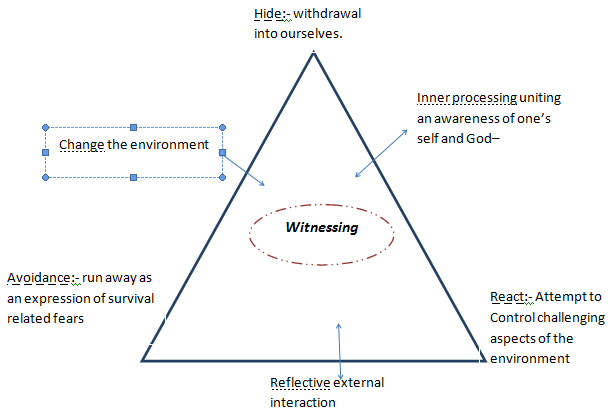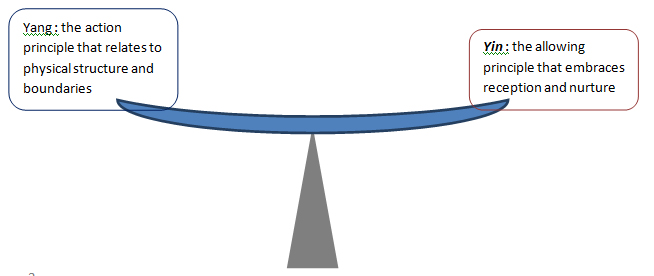Love, freedom and safety,
The foundations for movement.
Movement – The Foundations for Play,
Play – Foundations for Learning.
Learning – Foundations for Intelligence
Intelligence – Foundations for Personal Empowerment
Empowerment – Foundations for Heart-full Living
Heart-full Living – Foundations for the Engagement of the soul.
Engagement of the Soul – Revival of Higher Consciousness
Higher Consciousness – Foundations for Communion with God
Communion with God – The Supreme source of Love and Light
Love and Light – Living the Dream of Heaven on Earth
Abstract mental processes and Survival Issues
Abstract mental processes create a dominance of survival issues. This dominancecan disruption learning and relationships. This blocks the person’s ability to engage in a positive and useful lifestyle and inhibits development of human consciousness.
Abstract mental processes have minimal influence over our development of movement and sensory appreciation outside of primitive responses based on fears related to survival. If imagination is given priority over every day living and learning then occupational abstract thinking will dominate the person’s activities and wellbeing. Abstract thinking gives priority to survival related mental and physical activity. This survival mode of behaviour, blocks the development and potential influence of conscience upon behaviour and learning i.e.-
- One’s ability to integrate sensory information with conscious brain functions;
- One’s awareness of physical consequences;
- One’s ability to predict the results of a specific action;
- One’s ability to integrate abstract and concrete thinking and thereby engage in creative activity.
- One’s ability to engage in self-directed learning
- One’s ability to communicate.
- One’s ability to engage in positive social activities, (as opposed to negative anti-social behaviour).
- One’s ability to express compassion and empathy within a sharing/caring context.
Our ability to reflect and witness both our inner disposition as well as our relationship with the world around us is the key to our level of consciousness and inner wellbeing.

Moving into creative levels of consciousness requires that we integrate the two principles of existence and growth described below as action and allowing.

Through our conscious awareness of being witnessed, we meet the development of our ability to witness ourselves and to be the witness for others.
Stage ONE
Through our physical sensory system we witness the physical qualities presented by the world around us. From this we develop and learn to integrate ourselves with our environment
| A pre three child relates to themselves as a part of the world in that like a bubble in a glass of water which is separate from the water yet the bubble is unable to establish itself autonomously because the water gives the bubble its form and directs its movement. |
The young child before the age of three actively employs strategies of copying and repetition that engage them with their environment through movement and the associated sensory experience. This age is predominantly one of exploration.
The young child from three to seven actively seeks sensory entertainment in order to assimilate extensive amounts of sensory information within the simple structures of copying and repetition. This is the age of wonder and joy, experienced through the three E’s Exploration Experimentation Enthusiasm; celebrating free will and the ability to utilise the predictable aspects of cause and effect. The young child now develops their own enthusiasm for life and physical structures of order both natural and manmade. At this stage order and routines are used to establish the inner assimilation of sensory perceptual knowledge and subsequent skills that enable the ability to creatively influence the environment through action and imaginative representation.
Stage TWO
Through social interaction we witness the human capacity to feel emotions. From this we develop and learn about our own inner feelings and emotions.
Stage THREE
After the age of seven we develop the ability to witness from an independent place of consciousness. We witness what others do and integrate what we see into our own experiences and levels of intellectual understanding. We develop an ability to engage in discovery learning.
Traditionally this is considered the beginning for potential God consciousness i.e. a heart soul-spirit connection within that promotes aesthetic appreciation and joy for life through discovery learning.
From the age of nine we develop the ability to witness ourselves and how the environment affects us and those around us. We learn how we can influence others through sharing and caring or even lying, people pleasing and challenging attention seeking behaviour patterns.
Creative endeavours can now integrate imagination with self-directed organisation of interaction with others and the physical environment.
11-14
During these years of development we can consciously organise sharing and caring from an empathetic disposition.
14 and onwards.
Now we develop the ability to relate to how we witness ourselves and others and incorporate this as an aspect of our personal development and social awareness. We develop and learn about consciously embracing issues associated related to change and transition. We learn how to consciously processes responsibility and integrate the actions and feelings of others consciously with our own situation.
